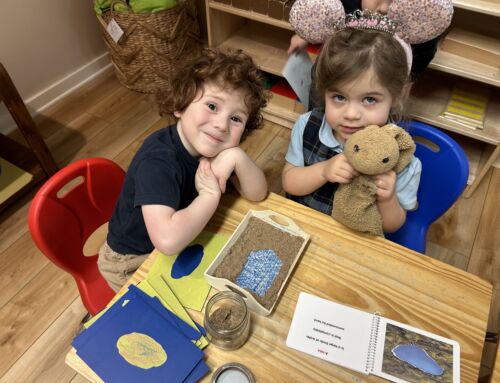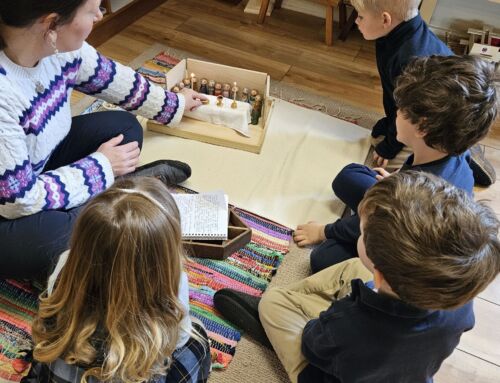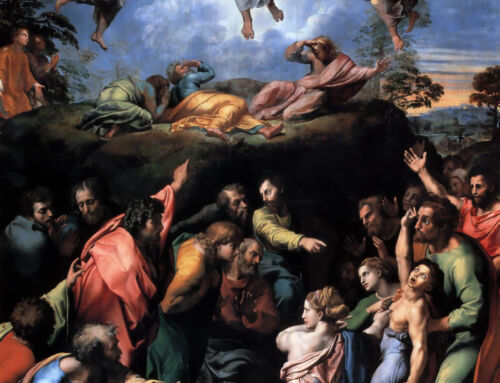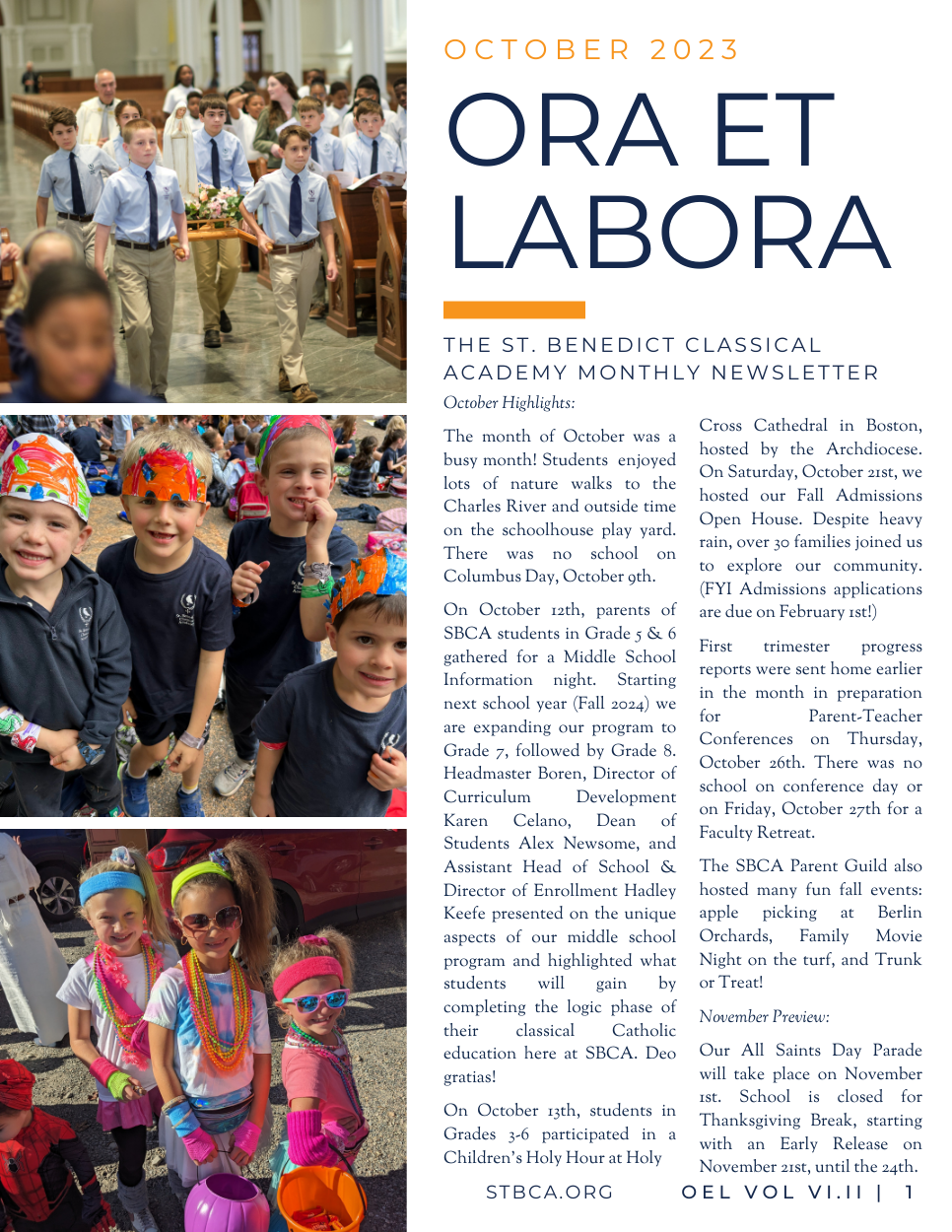“Death and life are in the power of the tongue, and those who love it will eat its fruits.”
– Proverbs 18:21
I now teach four Latin classes at St. Benedict Classical Academy, but only have recently gained a true appreciation of the language. Like my students, I too wrestled with the questions: Why Latin? Why are we doing this? Some of the students struggle to master reading and writing in their own native language as it is, so why are we having them spend their time and energy on a language which is dead in all but the Catholic church, and where even in the Catholic church it seems to be rare still and causing much controversy?
At SBCA the model of our education is oriented toward the Logos: the objective Truth that creates and binds together the Universe, that is the center of the Universe, and that actually became incarnate so that we might know Him personally, Jesus Christ. This may seem random in train of thought, but it truly is the basis of a Liberal (i.e. a “freeing”) education. Likewise, when we study Latin in order to gain an understanding of world languages, our own language, the Church’s language, and language as a whole, we do so with the premise that the Truth reigns.
Language is the ordered system through which we convey reality as it is to one another. We do this using speech. Speech is not simply an accumulation of monkey sounds through which we can each get what we want. Speech is the mark of a rational creature, made in the image of the Logos. When we speak we are actually using our rational power to imitate, seek, and glorify the Truth. Uttering words and sentences can therefore be done well or poorly. If done well it glorifies God’s ordered creation, and if done poorly, it presents things as if they are what they are not.
By teaching students Latin we are teaching them to use language to order their speech; we are allowing our children to earn their right to the Freedom of Speech. For a great multitude today, the notion of Freedom of Speech has been lost. There are those on one extreme who want to reduce the words or sentences that can be said; carefully choosing limitations on human speech is the distorted solution they come up with in order to evade harmful things that could potentially be said—banning certain pronouns, blotting out certain people for having said particular sentences, removing terms such as “God” … the list goes on. On the other extreme are those who decide that freedom of speech is license to take pleasure in saying things which ought to remain unspeakable regardless of how rash this is or whatever negative consequences it might bring. Worst of all, in both camps, are those who subtly alter the meanings of words in order to fit their own selfish designs, so that in an act of pride, language is strangled into supplying advantages for oneself rather than glorifying the cosmic Truth. True Freedom of Speech is the responsibility to speak well. We can have Freedom of Speech when we have mastery in the parts of speech and also in vocabulary so that we ourselves can direct our words – the signs by which we know reality – and our words in turn can navigate us and those around us towards Truth.
Learning Latin, the mother language of western civilization, therefore allows a student to know English words from their original roots, and therefore to preserve the meanings of words. The highly organized grammatical system closely indicates the manner in which grammar imitates nature. A student of Latin can visually see how adjectives agree with nouns of the same gender, number and case, and therefore, the student can become more familiar with substance and accident in the real world. Translating a sentence by looking at the endings of the words, finding each word’s role in the sentence, and using the process of elimination if there is more than one possible answer shows the student the logic that is used in constructing sentences. In short, I aim to teach Latin to the students of St. Benedict in order for them to align their speech more closely with the Truth. A foundation in Latin will give each student a clear understanding of how syntax and etymology can make such alignment possible.
According to scripture, “If we put bits into the mouths of horses that they may obey us we guide their whole bodies. Look at the ships also; though they are so great and are driven by strong winds, they are guided by a very small rudder wherever the will of the pilot directs. So the tongue is a little member and boasts of great things. How great a forest is set ablaze by a small fire!” (James 3:3). It is not only true that we guide the words we speak, it is also true that the words we utter will guide us. Such a sobering warning from James is indeed an incentive to teach our children to speak well, because, through either the diction they use or the quality of their grammar, if they speak as if that which is false is actually true, then they will live falsely, but if their speech reflective of the Truth, so too will there lives be.
AUTHOR: Peter Dowdy, Latin Teacher








